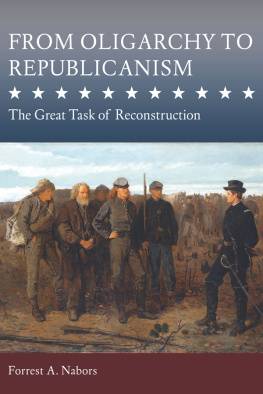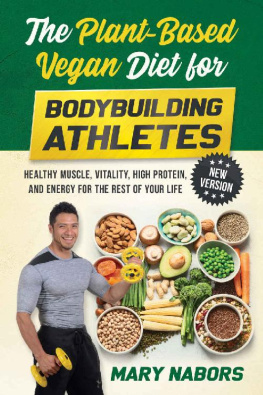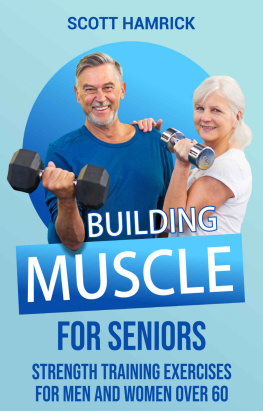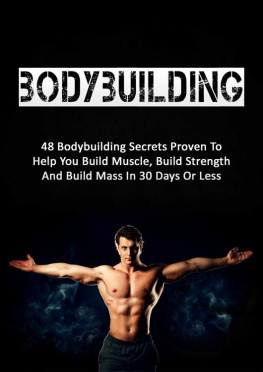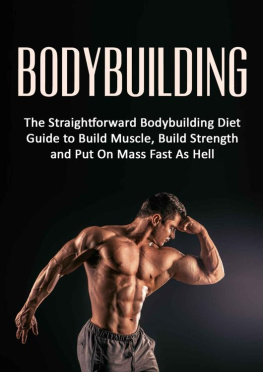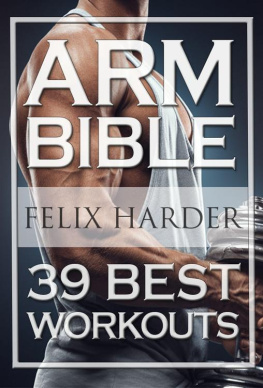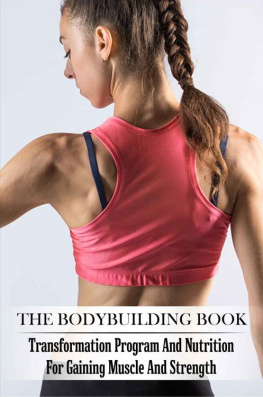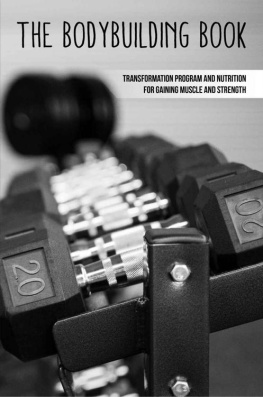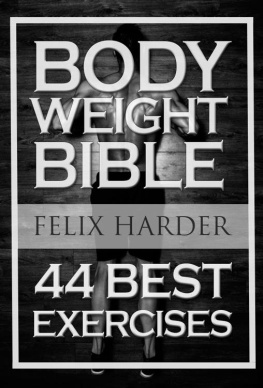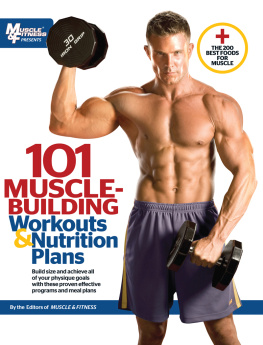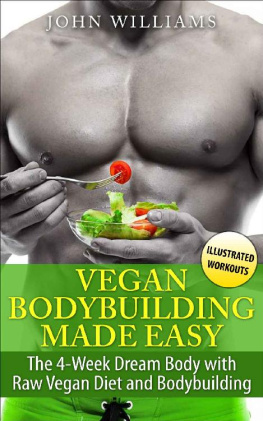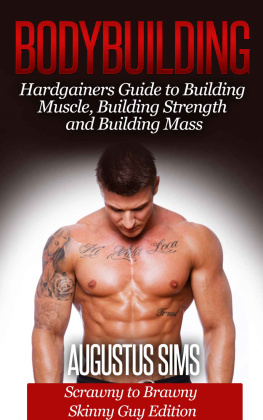VEGAN BODYBUILDING DIET
How to Increase Muscle Mass and Burn Fat
Mary Nabors
Copyright 2020 by Mary Nabors All rights reserved.
This eBook is provided with the sole purpose of providing relevant information on a specific topic for which every reasonable effort has been made to ensure that it is both accurate and reasonable. Nevertheless, by purchasing this eBook, you consent to the fact that the author, as well as the publisher, are in no way experts on the topics contained herein, regardless of any claims as such that may be made within. As such, any suggestions or recommendations that are made within are done so purely for entertainment value. It is recommended that you always consult a professional prior to undertaking any of the advice or techniques discussed within.
This is a legally binding declaration that is considered both valid and fair by both the Committee of Publishers Association and the American Bar Association and should be considered as legally binding within the United States.
The reproduction, transmission, and duplication of any of the content found herein, including any specific or extended information, will be done as an illegal act regardless of the end form the information ultimately takes. This includes copied versions of the work, both physical, digital, and audio unless express consent of the Publisher is provided beforehand. Any additional rights reserved.
Furthermore, the information that can be found within the pages described forthwith shall be considered both accurate and truthful when it comes to the recounting of facts. As such, any use, correct or incorrect, of the provided information will render the Publisher free of responsibility as to the actions taken outside of their direct purview. Regardless, there are zero scenarios where the original author or the Publisher can be deemed liable in any fashion for any damages or hardships that may result from any of the information discussed herein.
Additionally, the information in the following pages is intended only for informational purposes and should thus be thought of as universal. As befitting its nature, it is presented without assurance regarding its prolonged validity or interim quality. Trademarks that are mentioned are done without written consent and can in no way be considered an endorsement from the trademark holder.
TABLE OF CONTEN T
About vegan die t
Many people consider vegetarianism and bodybuilding to be mutually exclusive. Well, they're wrong. You can absolutely do both. However, you need to know what you are doing. One reason why vegan bodybuilding is faced with a modern bum rap is that it is more confusing than traditional omnivorous approaches. For this reason, research has shown that omnivores tend to have more muscles than vegetarians. There are also some nutritional myths that are common among vegans, making muscle building particularly tricky.
The conclusion is:
Failure to understand and correct the deficiencies and limitations of vegan nutrition related to bodybuilding can lead to disappointing results. But if you do it and plan and adjust accordingly, you can build muscle, lose fat, and become stronger. Learn about the most common mistakes vegans make when building muscle and how to get the most out of training with vegetable fuels.
What is a vegan bodybuilding diet ?
For aesthetic reasons, bodybuilders conduct intensive strength training and strive to build muscle tissue. Nutrition plays an important role in the process of building muscle. For optimal muscle growth, it is generally believed that protein intake is fairly high at around 0.7 to 1.0 grams per pound per day (1.6 to 2.2 grams/kg). An excess of 10 to 20% of calories can also help build muscle, especially for those new to training. Traditional bodybuilding diets contain many animal foods due to their high protein and calorie content.
Vegan bodybuilding diets contain no animal products and contain more protein than conventional vegan diets. This is a challenge for bodybuilders after a vegan diet since vegetable proteins tend to be of lower quality than animal proteins and can affect muscle building. Therefore, careful planning is required to ensure adequate intake of protein, calories, and some micronutrients that may not be included in the vegan diet. Vegan bodybuilding diets change in different phases of a bodybuilder's life, e.g., B. in the off-season or when preparing for competitions where body fat is often lost.
Some important key point s
1) Many vegans have difficulty building muscle because it is difficult to eat enough high-quality protein. This can be solved by eating more suitable plant protein.
2) Vegans must also have sufficient omega-3 fatty acids, vitamin B12, vitamin D, and other nutrients from a variety of foods and nutritional supplements.
3) The most effective way to make vegan bodybuilding work is to create a vegan bodybuilding diet plan. Read on to learn how!
How to implement the diet
Implementing a vegan diet may seem very easy, but ensuring complete nutrition requires considerable planning. Vegan bodybuilding diets include several staple foods on which much of the diet is based. Many vegan recipes require some products. To start a vegan bodybuilding diet, it is beneficial to plan a 5-7-day meal to ensure all the ingredients. If you are moving from a traditional diet, it may be helpful to slowly add more vegan foods to your normal diet before you switch completely.
The Truth about Protein and Vegan Bodybuilding
Decades of anecdotal and scientific knowledge of muscle building have shown that certain elements of nutrition and training are more important than others.
For example, if you want to maximize muscle growth.
You want to make sure you don't run out of calories.
You want to gradually strain the muscles.
You want to focus on combined exercises.
You want to restrict the cardiorespiratory function.
You want to eat many carbohydrates.
And you want to eat enough protein.
This last point is very important .
Numerous well-designed and expert-reviewed studies have no doubt shown that a high protein diet builds muscle and reduces fat better than a low protein diet.In terms of the exact amount, studies have shown that the optimal intake of bodybuilding proteins is between 0.8 and 1.2 grams per pound of body weight. And here many vegan bodybuilders die from grapevines.
Where Many Vegans Go Wrong With Protein Intake
From a nutritional subject of sense, the main difference between vegans and omnivores is protein intake. Most people who eat "healthy" meals along the way already consume most of their carbohydrates and fats from plant-based foods such as grains, fruits, vegetables, nuts, and oils. This doesn't change if you go vegan. However, merely replacing your favorite high protein animal foods like meat, eggs, and dairy with low protein plant foods like beans, grains, and nuts will change your protein intake. Not only that, but many people are also replacing those protein sources that are particularly good for building muscle with something that is not.
However, instead of recognizing that eating enough protein in a vegan diet takes a little more thought and effort than an omnivorous diet, many vegans dig their heels and follow a solid diet. That is, instead of acknowledging that their diet is perfect and not unique in every way, they make it white. And they usually rely on a lie to do that.
You dont need much protein to maximize muscle growth .


